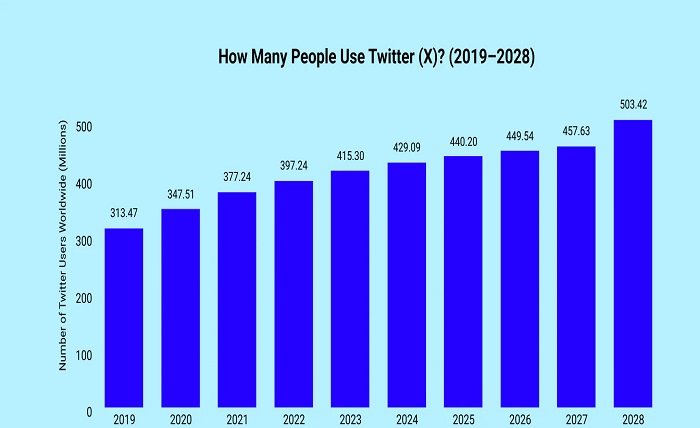The Dynamics of X User Count: Its Significance and Trends

The “X User Count” refers to the number of active users or subscribers that a service, platform, or application has at any given time. This metric is crucial for businesses to understand their audience size, measure growth, and gauge the success of marketing campaigns. Whether it’s a social media platform, a mobile app, or a subscription service, knowing the “X User Count” helps companies tailor their products and services to better meet the needs of their users. The data derived from tracking user counts can influence product development, marketing strategies, and overall business decisions.
The Importance of Monitoring “X User Count”
Monitoring “X User Count” is essential for any business that operates online or relies on a user base to generate revenue. This metric not only provides insights into the size of an audience but also helps in understanding user engagement levels. Businesses can track how changes in their services affect the “user-x,” which in turn enables them to optimize user experience. For example, if a new feature is introduced, a significant increase in user count can indicate its success. Conversely, a decline might suggest the need for further adjustments or improvements.
How “X User Count” Influences Business Strategies
The “X User Count” plays a pivotal role in shaping business strategies. Companies often use this data to make informed decisions about resource allocation, market expansion, and customer relationship management. A growing user count might lead to increased investment in server capacity and customer support, while a declining count could trigger a reevaluation of product offerings. Moreover, understanding the demographics behind the “X User Count” can help businesses tailor their marketing messages and reach out more effectively to their target audience.
Tools and Techniques for Tracking “X User Count”
Various tools and techniques are available to track “X User Count,” ranging from simple analytics dashboards to sophisticated data tracking software. Tools like Google Analytics, Mixpanel, and Adobe Analytics offer detailed insights into user behavior and count. These tools help in segmenting the user base, tracking active and inactive users, and understanding patterns over time. By effectively using these analytics tools, businesses can gain a deeper understanding of their user dynamics and adjust their strategies accordingly.
Challenges in Maintaining a High “X User Count”
Maintaining a high “X User Count” can be challenging, especially in competitive markets where users have numerous options. Challenges include keeping the user interface intuitive, ensuring the reliability of the service, and continuously adding value through updates and new features. Businesses must remain adaptable and responsive to user feedback to maintain and grow their user count. This might involve regular updates, bug fixes, and possibly even a complete overhaul of the service based on user demands and market trends.
The Role of Marketing in Boosting “X User Count”
Effective marketing strategies are crucial for boosting the “X User Count.” This involves not only attracting new users but also retaining existing ones. Campaigns that highlight the benefits of a service, special promotions, and referral programs can all contribute to increasing the “X User Count.” Social media marketing, email campaigns, and influencer partnerships are other effective channels for reaching a broader audience and encouraging more sign-ups or downloads.
The Impact of User Feedback on “X User Count”
User feedback is directly linked to the “X User Count” as it provides businesses with critical insights into what users like and dislike. Actively soliciting feedback through surveys, user forums, and direct communication can help businesses identify and fix issues, leading to improved user satisfaction and potentially increasing the user count. Positive user experiences can also lead to word-of-mouth promotion, which is often the most effective form of advertising.
Predicting Trends with “X User Count”
The “X User Count” can be a valuable indicator of future trends. By analyzing this metric over time, businesses can predict growth patterns, seasonal fluctuations, and the potential impact of market changes on their user base. Predictive analytics can also be employed to forecast future changes in the “X User Count,” helping businesses plan for expansion or downsizing accordingly.
Case Studies: Success Stories Using “X User Count”
Several businesses have successfully leveraged their “X User Count” to drive growth and innovation. For instance, streaming services like Netflix closely monitor their user count to determine the popularity of shows and make decisions about which series to renew. Similarly, gaming companies use user count data to decide on updates or develop sequels for popular games. These case studies show how crucial a robust understanding of user metrics can be to maintaining a competitive edge.
Conclusion
X User Count is more than just a number; it’s a vital metric that can dictate the strategic direction of a business. Understanding and effectively managing this count can lead to better customer satisfaction, improved product offerings, and ultimately, business success. Companies that actively engage with and adapt to their user base’s needs, while also strategically using user data, are more likely to see sustained growth and success in their markets.
FAQs:
1. What is “X User Count”?
“X User Count” refers to the number of active users or subscribers that a service, platform, or application has at any given time.
2. Why is “X User Count” important for businesses?
It helps businesses understand their audience size, measure growth, and tailor products and services accordingly.
3. How can businesses track “X User Count”?
Businesses can use analytics tools like Google Analytics, Mixpanel, or Adobe Analytics to track user engagement and count.
4. What challenges do companies face in maintaining a high “X User Count”?
Challenges include maintaining an intuitive user interface, ensuring service reliability, and continuously adding value to retain users.
5. How can user feedback influence “X User Count”?
User feedback helps businesses improve their services and products, leading to higher user satisfaction and potentially increasing the user count.



